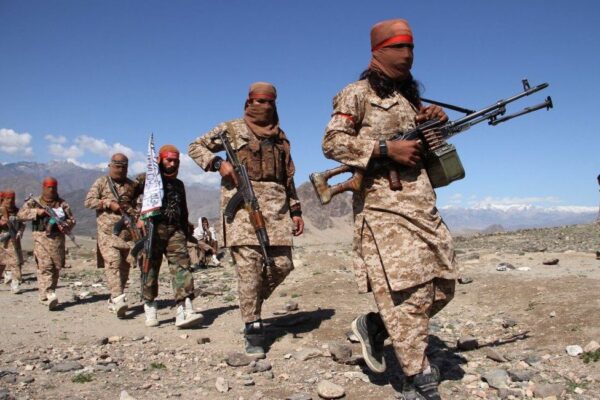
Afghanistan: Taliban Threatening Provincial Media
(New York) – Taliban authorities have conducted extensive sensors and violence against Afghan media in district and provincial centers, drastically limiting critical reporting in Afghanistan, said Human Rights Watch today. The situation faced by journalists outside Kabul looks far worse than in the capital, especially for women.
Journalists in the province have described members of the Taliban who threatened, hold back and beat them and their colleagues who tried to report the news. Many journalists feel forced to censor themselves and report only Taliban statements and official events. Female journalists face the most intense repression.
Harassment and Taliban attacks on journalists outside of large urban areas are mostly reported, causing media outlets in remote provinces to censor themselves or close at all,” said Feresthta Abbasi, Afghan researcher at Human Rights Watch. “In many provinces, the Taliban almost eliminated reporting on various problems and has encouraged female journalists from the profession.”
On February 2, 2022, Taliban spokesman Zabihullah Mujahid, said at the Afghan journalist safety committee meeting, a media advocacy group, that journalists must consider “national interests, Islamic values, and national unity” before publishing. He said that the new media commission will be established to overcome any problems, and that the authorities will enforce the media law of former government. He also said without describing that “women can work freely in the media by observing Islamic and national principles.”
But journalists throughout Afghanistan said that the Taliban greatly limited their work to violate the law of Afghan media and international human rights standards about freedom of expression and the media. It is estimated that 80 percent of female journalists in Afghanistan have lost their jobs or leaving the profession since the Taliban takeover in August 2021, and hundreds of media outlets have been closed.
Human Rights Watch spoke with 24 journalists and other media workers in 17 of the 34 provinces of the country to learn about the conditions outside Kabul. Journalists in each province said the Taliban actively monitored their publication and forced them to share the contents of their report with the Directorate of Information and Provincial Culture before publication. Many journalists say that Taliban intelligence officials regularly meet with media organizations to notify them what must be published and warn them not to conflict with the Taliban policy or report acts of violence by Taliban officials.
We are all afraid of our salvation,” said a reporter in Baghlan. “If something happens to a journalist, there is no institution or system to support them, or to seek justice. There is no support for media workers in Afghanistan at this time.”
Many journalists say they or their colleagues are beaten for trying to report anti-Taliban protests, arbitrary detention, rising food prices, and other subjects that put Taliban officials in poor light. In some provinces, Taliban officials told all female journalists to stop working. Some who are allowed to work can no longer have a role in which they meet face to face.
Getting news from Rural Afghanistan is never easy, but the Taliban repression on the media in the province is dangerous for journalists and people whose lives are harmed by unreported violations,” Abbasi said. “The government must press the Taliban to end all attacks on the media, both in Kabul or rural.”

